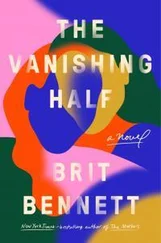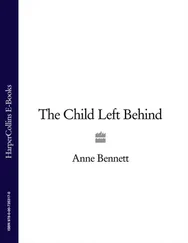We walked down Wembley Way among hundreds of Welsh supporters, but in complete silence. No complaints or excuses, no rancour or accusations – not even any of the dark humour that had often followed some of the worst Welsh defeats in the previous years. They were all stunned at the awful magnitude of the defeat. There were no saving graces – absolutely none.
We waited on the platform, among hundreds of Welsh fans and this deathly hush. Incredibly, I spotted the same young kid I had seen before the match with his grandfather. All the bounce and energy had left him long ago. It struck me then how this kid had gone to the game so expressive and come away looking numbed and bored. If he was going to be hooked by rugby then he needed heroes, but Wales had nothing to offer when it came to heroics that afternoon. It hadn’t been a surrender, but the resistance had been brushed aside.
Pat and I were meant to meet friends for dinner that evening, but I couldn’t face them. I couldn’t even face food. I just wanted to get home and forget all about it. It was one of the emptiest feelings I’ve ever felt after watching Wales and I couldn’t even be bothered to fill my empty stomach. If 1978 provided bread of heaven, this was starvation rations for every Welshman there.
Kevin Bowring quit as Wales coach within a few weeks and I thought, ‘This is it. Welsh rugby cannot go any lower.’ I was wrong. Two months later Wales went to South Africa and lost 96–13.
Rugby used to be the undisputed national sport within Wales. But in the 20 years between the Welsh Grand Slam of 1978 and that awful day at Wembley, a rival pastime has emerged – talking about what went wrong. The pub chat used to be arguments about rival players. Now the arguments are over rival arguments. Who has the best theory to explain our descent has replaced talk over who has the best players. It’s the question I am asked all over the world. What went wrong?
Go into any rugby club bar in Wales and you’ll hear all the various theories over what went wrong, usually discussed in the same evening. It was the decline of the grammar schools; it was the decline of the heavy industries such as coal and steel; it was the teachers’ strike; it was poor coaching, it was hard-up players unable to resist the tempting offers from rugby league; it’s the fault of amateur administrators, the fault of professional players, the fault of the English; it was Western Samoa – the whole of Samoa!
In reality, it was probably all those things and more, but I can only talk from the vantage point provided by my own experiences. When I left the field in 1978, I walked into a dressing room bursting to the seams with enormously talented rugby people. It was a deep reservoir of skills and experience. But the game in Wales, in all spheres, so rarely turned on the tap.
It’s often suggested by some that the players from the seventies, those who provided the so-called Golden Era, turned their back on the game and walked away. They didn’t have the inclination or the generosity of spirit to put something back. Believe me, it was never like that. Some of us who had written books or newspaper columns after our retirement were simply banned by the Welsh Rugby Union from having anything to do with the game. We had committed the crime of professionalism, even though we had been paid for our efforts off the field rather than on it. We were not allowed to play, to coach, to hold any positions whatsoever. We had never taken a penny for playing, but the moment we opted to give something back to our families for all the time we had been away, we were branded as unworthy of staying within rugby union. And even those who had not sold their souls to the devil of professionalism were never encouraged to take up prominent positions within the game, either in coaching or administration.
After I played my last match for Wales I spent three more years with Llanelli, during which time I came back from a serious knee injury to play one last full season. I trained with track and field athletes to get myself fully fit and discovered a level of fitness I had never known before. I was quicker, stronger, more flexible and had more stamina at the age of 31 than I’d ever had before. But once I had put pen to paper for payment in 1981, that was it. I had to retire. Not only that, I had to cut myself off from any sort of role at the club I had loved and served for 14 years.
Just after I had retired I was asked to play in a charity match for a young man who had been injured in a car accident. It was against an international XV and I was desperately keen to play, but I had to turn down the offer. Because of the regulations at that time, if I had played not only would I have broken the rules myself but I would also through sharing the same pitch have ‘professionalised’ every other player on the field. I felt like a leper.
The consequence of this rule was to cast adrift so much knowledge. The 1978 team was full of genuine world-class talent, but within two years it had almost all disappeared, not just from the team but from the game as a whole. Even those players who were not deemed professional were never encouraged to have a role. In the three years between 1978 and 1981, I was never contacted by anyone at the WRU, never invited to coach or advise, or even simply to show my face around younger players or kids just starting to make their way in the game. The same went for all the other players. Between 1978 and 1980 the Wales team had lost JPR Williams, JJ Williams, Gerald Davies, myself, Gareth Edwards, Charlie Faulkner, Bobby Windsor, Derek Quinnell and Terry Cobner. Steve Fenwick, Ray Gravell, Allan Martin and Geoff Wheel all followed within a year or so. Not only did the WRU fail to make use of that expertise once we had retired, but over the next few years it became painfully apparent that nothing had been done to make sure there was a regular flow of talent behind us. Apart from one or two whose talent had ripened, the cupboard was bare.
Well-managed soccer sides don’t get wiped out overnight. The clubs integrate new players with experienced ones and the next generation is developed until their time has arrived. But there was no planning in the seventies. Within the heart of the WRU – and it was they who ran the game with absolute authority – there was a shameful complacency.
In the eighties, players were thrust into the Wales team and expected to sink or swim. The trouble was, the tide had turned and the momentum was now flowing with other countries that had got their acts together. A lot of those players sank without trace. But these were players who had never been watched and monitored through their developing years, and never been brought along to Wales training sessions to get a feel for international rugby. They were just chucked in and then fished out. I can remember going to watch a Wales training session in 1982, conducted by the coach Terry Cobner, and not recognising half the squad. They were strangers; boys plucked from the obscurity of club rugby and expected to succeed. It was a shock to many when Wales began to lose matches, but it should really have surprised no one.
One or two high-quality players tried to hold things together – guys like Terry Holmes and Gareth Davies – but results started to slide. Scotland scored five tries and thrashed Wales 34–18 in Cardiff in 1982 and then won at the Arms Park again two years later when France also won. It was the first time for 21 years that Wales had lost both their championship games in Cardiff. But even then, I didn’t really see a continuous downward trend. The Wales team of 1988, captained by Bleddyn Bowen, won the Triple Crown. It was an excellent side, inspired by the genius of Jonathan Davies, with solid forwards like Bob Norster, Rowland Phillips and Paul Moriarty, and great finishers in Ieuan Evans and Adrian Hadley. I thought, ‘This is it. We’ve gone through our sticky patch, but these boys are class. We’re on our way back.’ It was ten years on from my last game for Wales and I thought the decade had been a journey down a wrong turning. Now we were back on the right road and normal service was going to be resumed.
Читать дальше












